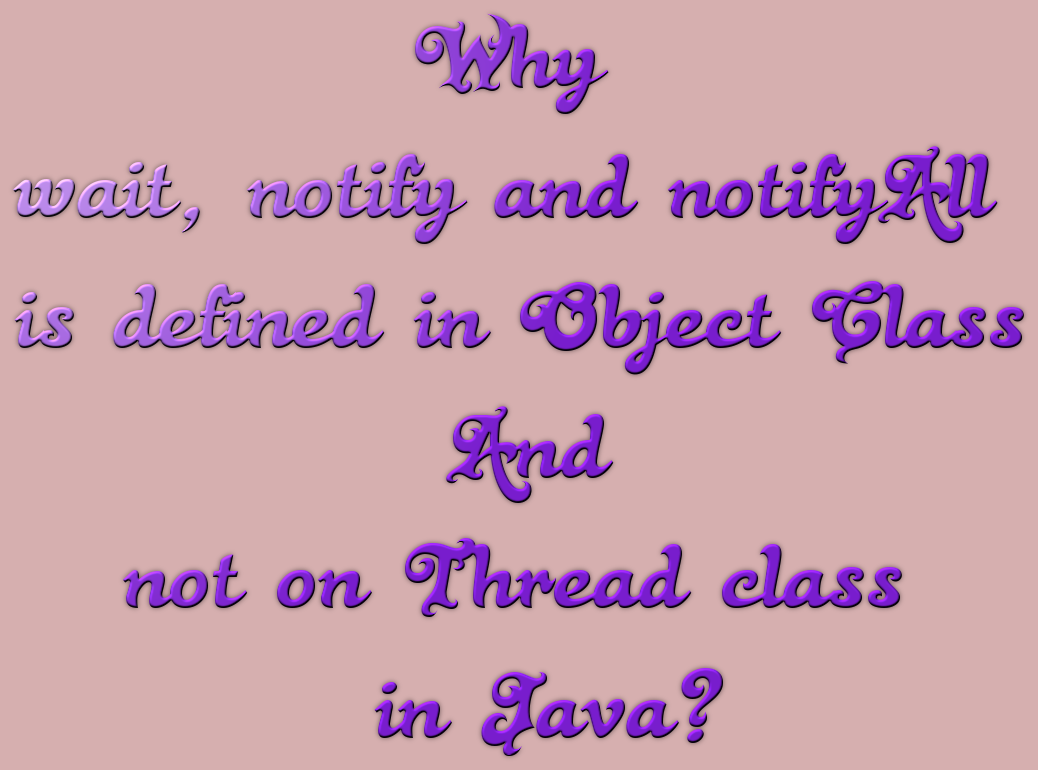Why wait, notify and notifyAll is defined in Object Class and not on Thread class in Java?
[1123 views]
In Java, you wait on a particular instance of your Object – a monitor assigned to that object to be precise.
If you want to send certain signal to one thread that is waiting on that specific object instance then you call notify() on that object.
If you want to send the signal to all threads that are waiting on that object instance, you have to use notifyAll() on that object.

If wait() and notify() were on the Thread instead of Object then each thread would have to know the status of every other thread, which is not possible as threads are async.
How would thread1 know that thread2 was waiting for access to a particular resource or vice-versa? If thread1 needed to call thread2.notify() it would need to somehow find out that thread2 was waiting.
The most simple reasons are as follows :-
1) Object has monitors.
2) Multiple threads can access an Object. Only one thread can hold object monitor at a time for synchronized methods/blocks.
3) wait(), notify() and notifyAll() method being in Object class allows all the threads created on that object to communicate with other.
4) Locking (using synchronized or Lock API) and Communication (wait() and notify()) are two different concepts.
If Thread class contains wait(), notify() and notifyAll() methods, then it will create below issues:
a) Communication Problem between Threads
b) Synchronization on object won’t be possible. If each thread will have monitor, we don't have any way of achieving synchronization.
c) Inconsistency in state of object.
Clear Any Java Interview by Reading our Ebook Once.
Can you clear Java Interview?
Search Engine Powered by Artificial Intelligence:
Comments
Search Anything:
Technical Quizzes Specially For You:
Online Free Tools:
- Java IDE Online
- Python IDE Online
- JSON Formatter/Minifier Online
- Case Converter
- Reverse String
- HTML Encoder
- HTML Decoder
- URL Encoder
- URL Decoder
- Decimal To Binary
- Binary To Decimal
- Decimal To Octal
- Binary To Octal
- Decimal To Hexadecimal
- Hexadecimal To Decimal
- Hexadecimal To Binary
- Octal To Decimal
- Octal to Hexadecimal
- Octal to Binary
- Calculate String Length
- Remove Spaces
- Remove Line Breaks
- Remove Empty Lines
- Remove Duplicate Lines
- Word Counter
- Replace Space with hyphen
- Check Armstrong number
- Text to URL
 0 Upvotes
0 Upvotes 0 Downvotes
0 Downvotes